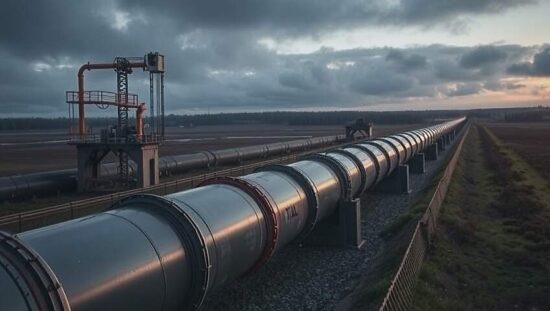The Czech Republic has become the first country in its history to be completely independent from Russian oil deliveries. The Czech government announced this on Thursday after the capacity expansion of the Western TAL pipeline was completed. The first increased pipeline deliveries have reached the central oil storage facility near the village of Nelahozeves, 20 kilometers north of Prague. Prime Minister Petr Fiala announced this at a press conference broadcast on Czech television. “This is a truly historic moment. After sixty years, our dependence on Russia is finally over and that is an important and good news” said Fiala. “For the first time in history, the Czech Republic will be fully supplied with non-Russian oil via the Western route” added the Prime Minister. The Czech government has been planning to end its partial dependence on the Russian Druzhba pipeline since the war in Ukraine began. For decades, oil from Russia has been delivered via this route. Last year, the Czech pipeline operator MERO completed the modernization of the Transalpine pipeline (TAL) at a cost of approximately 1.6 billion Czech crowns (around 64 million euros). The oil is transported from tankers at the Italian port of Trieste to Germany and then transported to the Czech Republic via the Ingolstadt-Kralupy-Litvinov pipeline (IKL). Thanks to the expansion of the TAL pipeline, the capacity has been increased to eight million tons per year, which corresponds to the country’s annual demand. Last year, the Czech Republic imported 6.5 million tons of oil, 42 percent of which were delivered via Druzhba, according to Reuters, citing data from the country’s Ministry of Industry. Other oil suppliers have been Azerbaijan, Kazakhstan, Norway and Guyana. Up to 58 percent of deliveries from Russia are expected in the years 2022 to 2023. MERO Director Jaroslav Pantůček told the press that Druzhba is still operational and ready to resume operations. Options for the future use of the pipeline are currently being reviewed. Druzhba continues to supply Hungary and Slovakia, which are interested in continuing deliveries from Russia.





